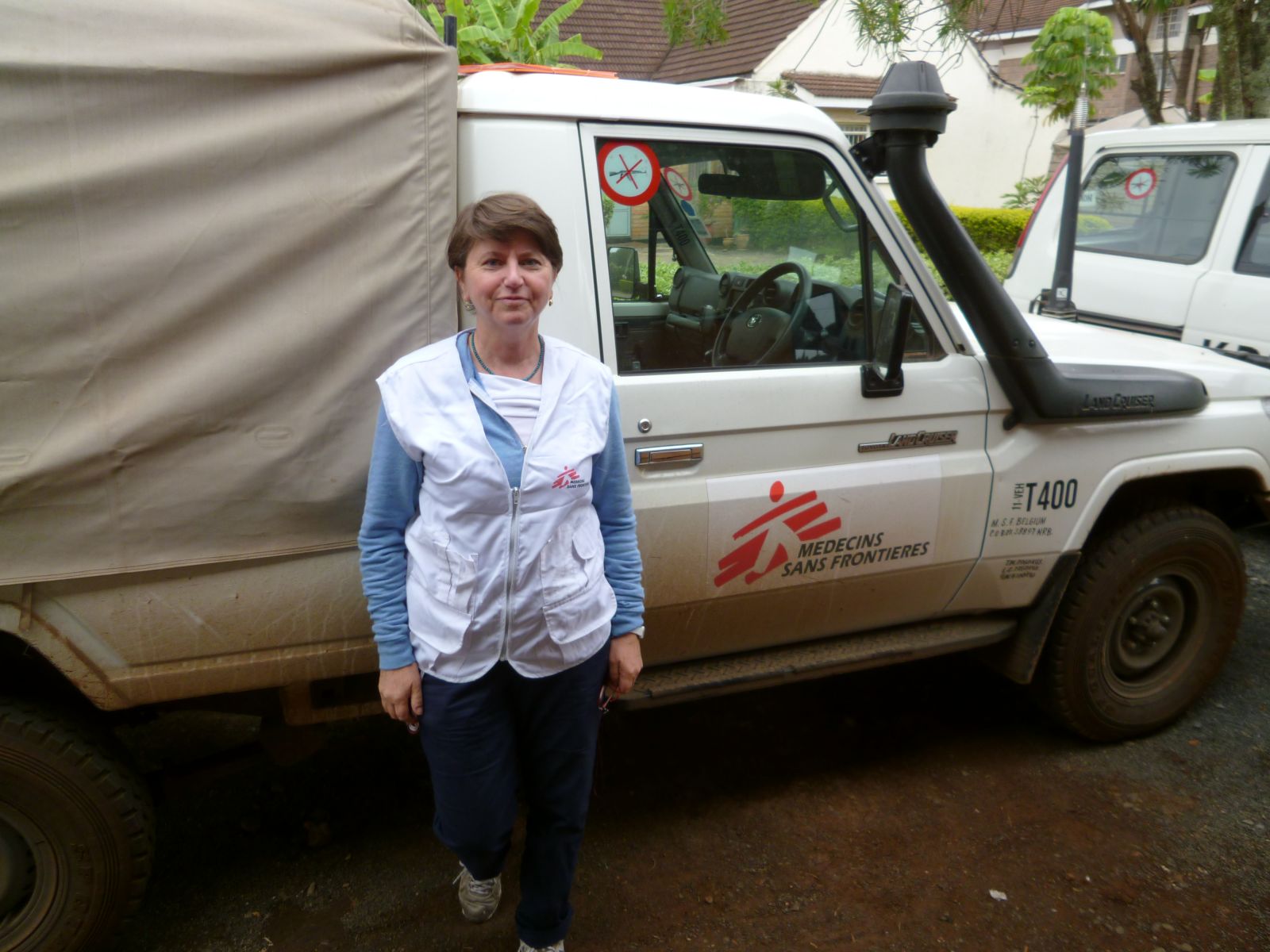Hospital pharmacists in humanitarian roles

EAHP: Tell us Monique, how did you end up working as a hospital pharmacist for Médecins Sans Frontières?
Monique:
I worked for over 30 years in hospital pharmacy, including 3 years in the USA, and many years in Belgium in general hospital, oncology and in later years, the psychiatric field. Coming towards the end of my career years I was looking for some final practice challenges, and having enjoyed some voluntary work for NGOs in my spare time, when I saw an advertised role with MSF that matched my profile so well, I decided to go for it!
EAHP: Can you tell us about what your day-to-day work involved?
Monique:
During my time with MSF I focused on the aspect of supply, and in particular, of medical devices. MSF has 3 principal supply centres, in Bordeaux, Amsterdam and Brussels, which is necessary given the wide range of locations that MSF operates in, as well as the need to provide contingent supply in case of shortage.
My role involved ensuring that the quality assurance oversight of medical devices used by MSF was in good order. This is necessary as so often MSF use products and devices that are unfamiliar, or indeed unused, in countries with strict regulatory regimes. One might think of devices for rapid diagnostic testing for infectious diseases for example. So my responsibilities included creating dossiers about companies and products, conducting site visits and inspections to manufacturing sites, and developing MSF’s overall quality assurance approach.
.JPG)
Monique:
The big insight I suppose was into the value and importance of good quality management systems. If the quality management system is right, then time after time the product will be right too. Without that in place, product quality can become something too much resembling a gamble. My work at MSF was focused on eliminating such gambles as much as possible. That hands-on involvement in device manufacturing processes is not something every hospital pharmacist in practice will typically experience.
EAHP: What advice would you give to other hospital pharmacists thinking of working in humanitarian roles?
Monique:
I would say ‘do it’. In many ways, it’s a totally different world to what one would normally experience in hospital pharmacy and if you like change and challenges, then it’s the place for you.
In a supportive and proactive organisation like MSF, everything is achievable. The role therefore pushes you, as you know the organization will support you to meet all the challenges presented. The working atmosphere is convivial with all colleagues motivated by the same humanitarian mission. I experienced less of the professional barriers that can unfortunately present themselves on occasion in hospital.
However, as an emergency NGO, you must also be prepared to work in a pressured environment as projects often need to start and complete quickly. Be conscious too that you may be working remote from the field. In a role such as I held, this can be quite a change from the normal hospital environment. For example, a product quality issue can be generally quickly rectified within a hospital. In an MSF field environment, the challenges involved in resolving these difficulties can be scaled up.
Ultimately, you must be a highly motivated individual. NGOs need such people to operate effectively. Be aware too that financial rewards and motivations will not be the same as you have been used to. The real reward lies in seeing the difference your work makes to the workers in the field, and what they achieve in often very difficult locations.




